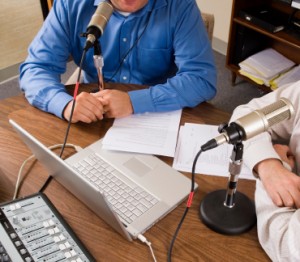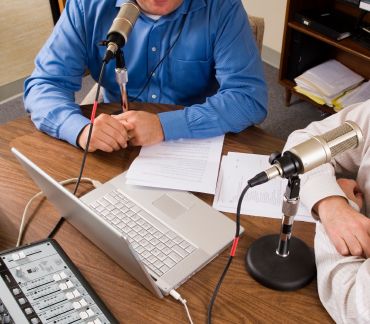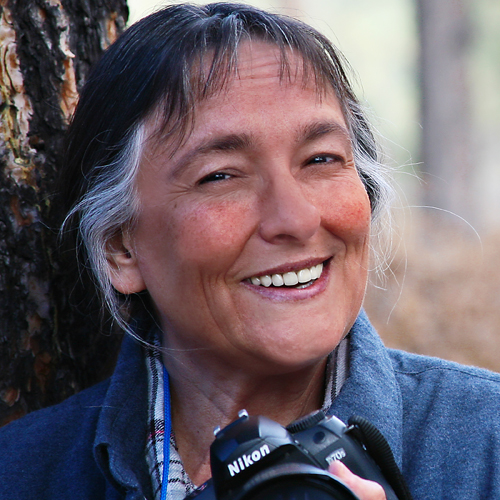What, Exactly — & for Whom?
Guest Expert: Laurel Marshfield
 Some observers say that podcasting (which used to be referred to as webcasting) has been around since 1998, or so, even though it was dubbed “podcasting” – a cross between iPod and broadcasting – in circa 2004. In either case, it’s been around for a relatively long time in “Internet time.”
Some observers say that podcasting (which used to be referred to as webcasting) has been around since 1998, or so, even though it was dubbed “podcasting” – a cross between iPod and broadcasting – in circa 2004. In either case, it’s been around for a relatively long time in “Internet time.”
Does Podcasting Have a Popularity Problem?
 And yet, relatively few authors have embraced podcasting as a promotional tool with the same eagerness that they’ve embraced posting on their own and others’ blogs, updating on Facebook, tweeting via Twitter, and discussing on LinkedIn groups for authors of all kinds (among other strategies).
And yet, relatively few authors have embraced podcasting as a promotional tool with the same eagerness that they’ve embraced posting on their own and others’ blogs, updating on Facebook, tweeting via Twitter, and discussing on LinkedIn groups for authors of all kinds (among other strategies).
That may be because podcasting does present a technological barrier (you need a few more tools than just your trusty laptop). Though there are various ways around that barrier, as we’ll see in a bit.
Or: It could be that podcasting hasn’t caught on simply because it hasn’t caught on. In other words, it never reached a tipping point — the way other media did — and so, it remained a viable but less well-known tool in the book-promotion toolkit.
But podcasting’s “second-tier” status may be about to change. A few authors, in recent years, have seen their careers flourish by using podcasting to build a large audience (by offering free downloads of their work), and in time, attracting the attention of publishers and even filmmakers (here’s a New York Times article about one part of this encouraging phenomenon.
How to Stay Ahead of the Curve with Podcasting
 Just so you will be prepared to stay ahead of this quite exciting promotional curve, let’s take a quick look at two quandaries that would-be author-podcasters routinely face:
Just so you will be prepared to stay ahead of this quite exciting promotional curve, let’s take a quick look at two quandaries that would-be author-podcasters routinely face:
(1) What to podcast about …
(2) Who to podcast for …
Unlike the technological barrier to podcasting, you’ll have a much easier time, here, because you can mentally recast this medium in such a way that you’ll answer the above two questions instantly. Here’s the not-always-apparent way to recast it: Think of podcasting as “audio blogging.”
In other words, it’s all a matter of providing information and/or entertainment for the ear, rather than for the eye (unless you’re going to do video podcasting, but we’ll put that aside to focus on the audio version for now).
Once you make this mental leap, all you need to do, then, is to follow the same strategy you’d use to grow an audience with your author blog — by keeping visitors so entertained and/or informed that they want to return regularly. And what strategy is that, you might ask?
Fiction authors have a choice. You can either blog about issues related to the subject matter of your novels. Or you can take the “helpful info for authors” route, and become a writing-publishing-marketing resource for other authors — as a way of growing an audience (an audience you hope will also be interested in your novels, at some point, as spillover traffic).
Nonfiction authors have a more straightforward podcasting path. You’d most likely want to become a resource for expanded, up-to-the-minute, and ongoing information about the subject matter of your nonfiction books. So if you write about conservation, say, you’ll want to post interviews with conservationists, write posts about legislative wins, and blog about conservation issues in the news, among other matters. In short, you’d want to become a “go-to” site for news and information about your particular subject.
Okay, so all you need to do is toss your existing blogging strategies up into the air, and flip them over into the medium of podcasting (you’d also want to flip your audience-attraction strategies – how you magnetize people who are probably a lot like you, at least in terms of their interest in your subject matter).
What Podcasting Can Do That Other Media Can’t
 There is, however, one thing you can do with podcasting that you can’t do with blogging (at least, not as portably), and it’s the same thing the aforementioned podcasting success story authors did. It’s serializing your entire book by recording your reading of it as short segments (about forty-five minutes each), and then, either selling or giving away your recordings as podcasts.
There is, however, one thing you can do with podcasting that you can’t do with blogging (at least, not as portably), and it’s the same thing the aforementioned podcasting success story authors did. It’s serializing your entire book by recording your reading of it as short segments (about forty-five minutes each), and then, either selling or giving away your recordings as podcasts.
How can you record and podcast your book? As with most other things having to do with podcasting, you have a few choices.
You can either learn the technology (you’d need a quite good recording microphone, a sound mixer, your computer, and perhaps some royalty-free or copyright-free music and sound effects files). To choose this route, an especially quick way is to visit Podiobooks.com and follow their tutorial.
Once you do that, you can publish your podcasts on their site for distribution – but only for free. If you want to charge for your podcasts, investigate iTunes.com and other sales resources (do an online search). For both free and paid versions, you can always, of course, offer both on your blog, your site, or your blogsite.
Your other option is to use one of the following two very simple and free services that bypass the need to learn about and purchase any additional technology. The first of these is AudioAcrobat.com. And the second is Cinchcast.com. They each have pluses and not-so-pluses, but you can decide what would work best in growing your career by using this versatile and highly portable medium. One that lets your readers download your podcasts or serialized books to the MP3 player or other electronic device of their choice, and take it with them wherever they may roam.
As ever author knows, the more options you give your readers for “consuming your content” (i.e., reading your books), the more readers you are likely to attract.
 Laurel Marshfield is a developmental editor (aka “book doctor”), ghostwriter, and co-author who helps authors shape, develop, and refine their book manuscripts for publication. Toward that end, she offers the following editorial services: manuscript evaluation, developmental editing, co-writing, collaboration, ghostwriting, book coaching, and consultation for authors.
Laurel Marshfield is a developmental editor (aka “book doctor”), ghostwriter, and co-author who helps authors shape, develop, and refine their book manuscripts for publication. Toward that end, she offers the following editorial services: manuscript evaluation, developmental editing, co-writing, collaboration, ghostwriting, book coaching, and consultation for authors.

Her blogsite publishes inspiration and advice for the author’s journey: Blue Horizon Communications And her free eBook, available for newsletter signup (see the upper right-hand corner of her homepage) is titled: I Need to Be a Bestselling Author – Is That True?: The Five-Destination Roadmap to Authorship.
On Twitter, you can find her at: @BookEditorLM



